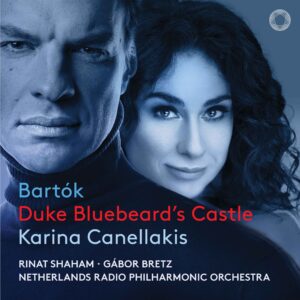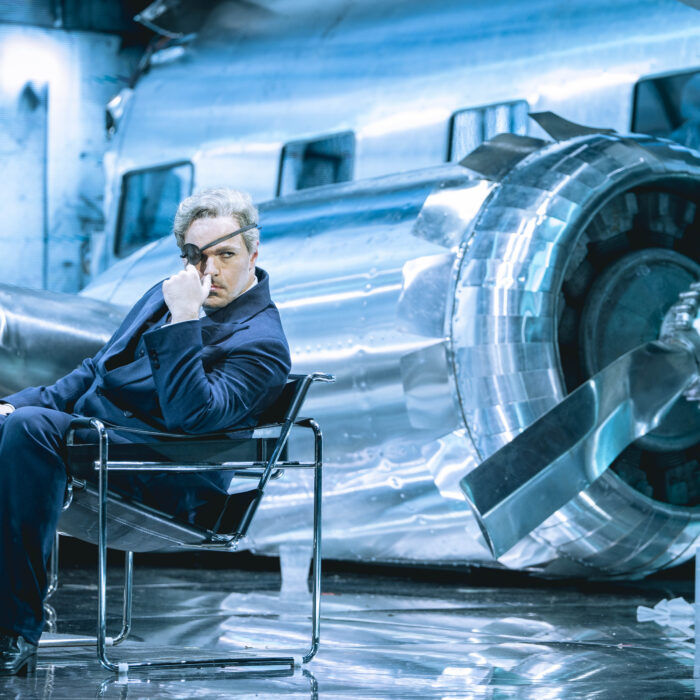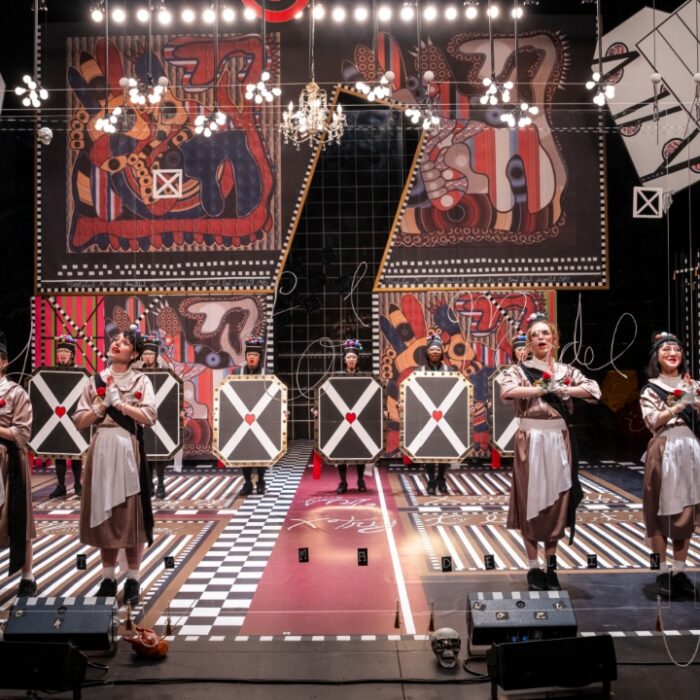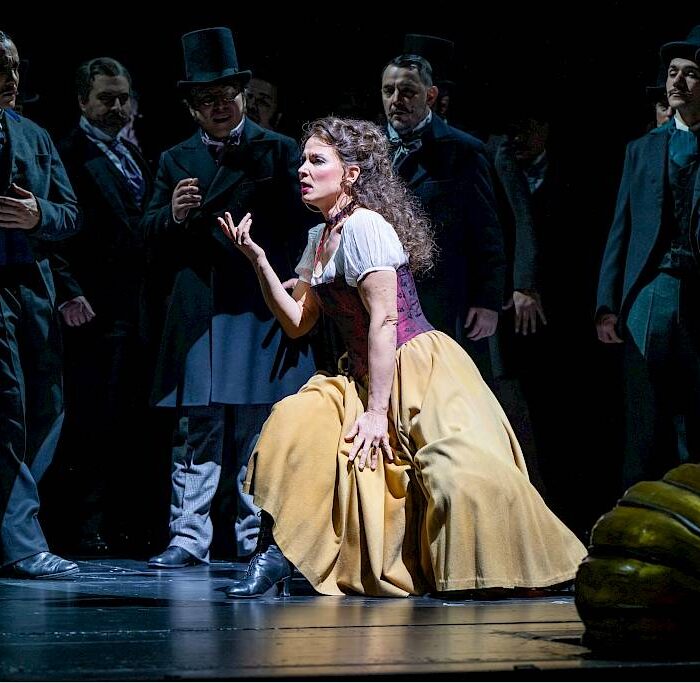
CD Review: Pentatone’s ‘Duke Bluebeard’s Castle’
By Bob Dieschburg“Bluebeard,” or Barbe bleue, may very well rank among the most disturbing of Perrault’s fairy tales. Its notoriety is such that bluebeard, in everyday language, is defined by Merriam-Webster as “a man who marries and kills one wife after another.” The storyline is precisely that—though it has a happy ending, if slaying the murderous protagonist is the type of justice you might contend with.
Because of its archaism—or better: the confluence between Eros and Thanatos—the plot has had a grip on the artistic musings of composers, notably from the Symbolist movement. Béla Bartók and the poet Béla Balázs are no exception: “Duke Bluebeard’s Castle,” in one act, propounds a most striking reinterpretation. It lends psychological depth to its protagonist, in line—perhaps—with Freudian advances (the opera was composed in 1911, when psychoanalysis virtually took off).
The new Pentatone release captures all this ambiguity, by brilliantly turning the Netherlands Radio Philharmonic Orchestra into the mouthpiece of unspoken trauma.
Bluebeard’s Kingdom
The emphasis of conductor Karina Canellakis lies on color—color as it unfolds in orchestral space. The “Fifth Door” is a case in point: when the brass and organ hit, the expanse feels truly epiphanous. The pacing is spot on; Canellakis does not linger, nor does she forfeit atmosphere for the sake of narration. But what really sets the release apart is the unimpeachable quality of the sound, with the Pentatone engineers capturing ever so slight a dynamic variation.
The recording opens with the prologue, which, in performance practice, is often omitted. Gábor Bretz infuses it with disquieting sternness, as if his lines were “dark, weighty, uncarved blocks of words” (to quote Balázs himself).
That very same sternness—or acerbity—pervades all of his portrayal, which pretends to be neither suave (like Sam Ramey’s) nor profusely black (like John Tomlinson’s). Rather, in this Bluebeard’s near-obsessive calls for Judith, there is some intangible vulnerability paired with an omnipresent sense of doom—expressed, as it is, through Bretz’s very own facility to insinuate rather than put out in the open.
He is a multifaceted, though enigmatic Duke who may not, at first listen, have the vocal charisma—let alone the exuberance—of some of his predecessors. But his interpretation is a chiaroscurist canvas, both terrifying and congenial to the orchestral backdrop.
“Dearest Judith, are you frightened?”
Rinat Shaham is a very lustrous counterpart, warmly timbered and radiant in her upper extension. Despite being described—by some—as a “middleweight mezzo,” the engineering is such that her presence has a stirring immediacy. Her emotional turmoil—at every other door—is exquisitely rendered in a flurry of dynamic accents that most effectively mimic Canellakis’ exploration of sonic space.
Together, the cast and orchestra form a finely tuned mechanism, where no element feels out of place. “Duke Bluebeard’s Castle” is arguably one of the most accomplished recordings Pentatone has released in recent months. It embarks on an unusually colorful–one might even say lyrical–exegesis that lays bare the symphonic marrow of the work without sacrificing any of its symbolic, or dramatic, allure.


